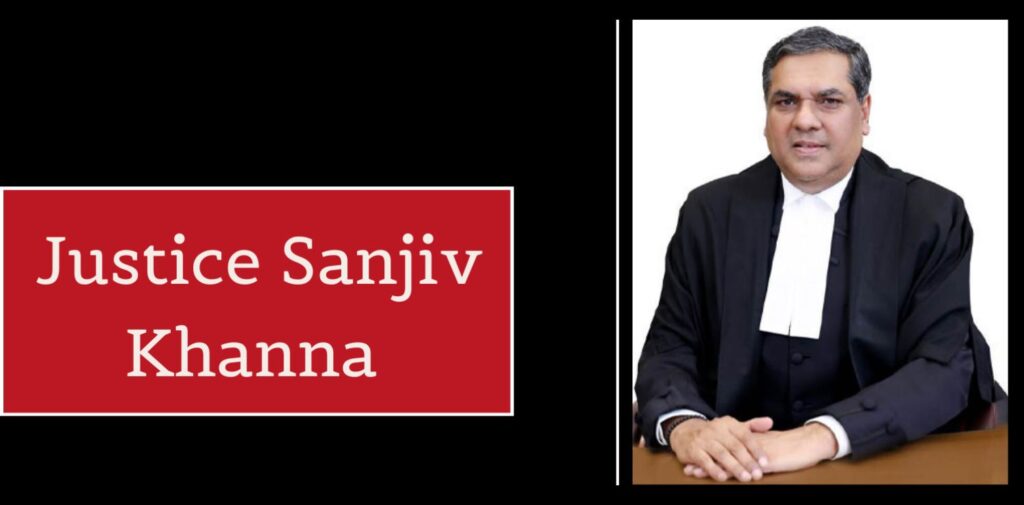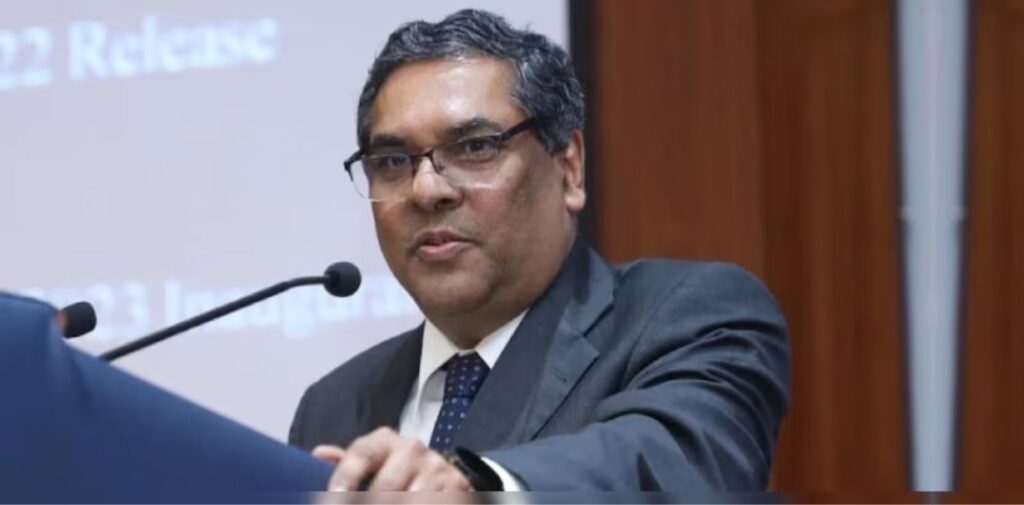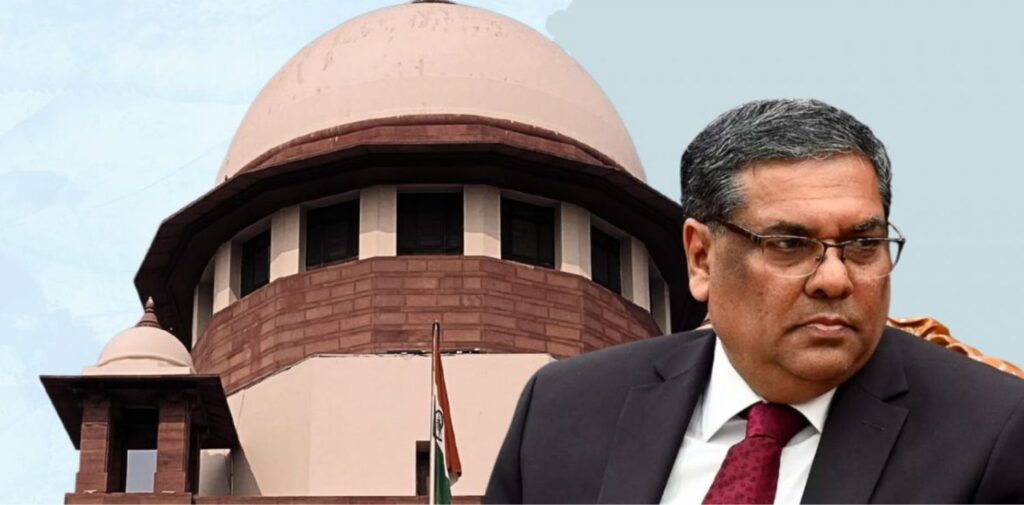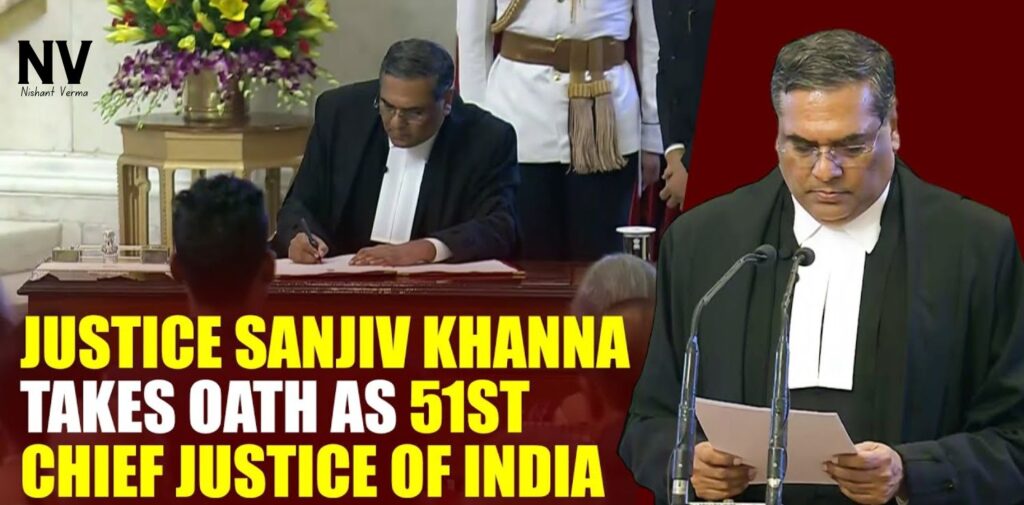On November 11, 2024, Justice Sanjeev Khanna will take the oath of office as the 51st Chief Justice of India (CJI). This marks a significant moment in the country’s judicial history as Justice Khanna, a senior judge of the Supreme Court of India, steps into the highest judicial office of the nation. He succeeds Justice D.Y. Chandrachud, who has held the position since November 2022.
Who is Justice Sanjeev Khanna?
Justice Sanjeev Khanna has a long and distinguished career in the Indian judiciary. He was born on 28th May 1957 in Delhi and is known for his knowledge of law, fair judgments, and strong sense of justice. Before being appointed to the Supreme Court, Justice Khanna served as a judge in the Delhi High Court for nearly two decades. His legal expertise spans a wide range of subjects, including constitutional law, commercial law, and tax law, among others.
In his earlier years as a lawyer, he represented clients in various courts and became known for his diligent work and thorough understanding of the law. Justice Khanna’s appointment to the Supreme Court in 2019 marked the beginning of a new chapter in his career. As a Supreme Court judge, he has delivered several important and landmark judgments, including those related to electoral reforms, freedom of speech, and the environment.

The Role of the Chief Justice of India
The Chief Justice of India is the highest-ranking judge in India. As the head of the Supreme Court, the CJI plays a critical role in overseeing the administration of justice in the country. The CJI is not only responsible for deciding important legal cases but also for ensuring the smooth functioning of the Supreme Court. This includes the allocation of cases to different benches and the establishment of judicial protocols. The CJI also has the duty of representing the judiciary to the government, Parliament, and the people of India.
One of the key roles of the CJI is to ensure the independence of the judiciary. The Indian judicial system is meant to be free from any outside influence, and the CJI is the protector of this independence. This means that the CJI must take tough decisions when needed, even when they go against popular sentiment or the interests of political powers. Moreover, the CJI plays a central role in appointing judges to the Supreme Court and high courts, thus helping to shape the future of India’s judicial system.
The Importance of the Appointment
Justice Sanjeev Khanna’s appointment as the Chief Justice is significant for several reasons. First, it comes at a time when the Indian judiciary faces numerous challenges, including a growing backlog of cases, a shortage of judges, and increasing concerns about judicial accountability and transparency. Justice Khanna, with his vast experience and legal acumen, is expected to bring his expertise to bear in tackling these issues.
Second, his appointment is expected to maintain the strong traditions of judicial independence and impartiality that have been the hallmark of the Supreme Court of India. Justice Khanna’s reputation as a fair and principled judge makes him an ideal choice to lead the judiciary in these challenging times. His tenure as CJI will likely focus on maintaining the credibility of the court and ensuring that justice is delivered swiftly and equitably.

Justice Khanna’s Contributions to the Judiciary
Justice Khanna has been part of many landmark judgments during his time in the Supreme Court. He is known for his deep understanding of the law and his ability to approach complex issues with clarity. Here are a few of his notable contributions:
- Electoral Reforms and Transparency: Justice Khanna has been a strong advocate for electoral reforms. In several cases, he has emphasized the need for transparency in elections, advocating for reforms to strengthen the democratic process. His judgment on the disclosure of criminal records by politicians has helped bring greater accountability to the political system.
- Freedom of Expression: In matters relating to freedom of speech and expression, Justice Khanna has shown great sensitivity to the importance of protecting individual freedoms while balancing national security concerns. He has emphasized that freedom of expression is a cornerstone of democracy and must be protected unless there are compelling reasons to limit it.
- Environmental Protection: Justice Khanna has also delivered judgments in cases involving environmental protection, underscoring the importance of sustainability and the need for effective environmental laws. He has shown a proactive approach toward addressing issues like air pollution, water conservation, and climate change.
- Upholding Constitutional Rights: As a judge, Justice Khanna has consistently worked to uphold the constitutional rights of individuals. He has been instrumental in ensuring that the rights of the common people are not trampled upon by the government or any other powerful forces. He has consistently advocated for the protection of fundamental rights, especially in matters related to personal liberty, equality, and justice.
Challenges Ahead for the New CJI
As Justice Sanjeev Khanna steps into the shoes of the Chief Justice of India, he will face several challenges. One of the most pressing issues is the huge backlog of cases in the Supreme Court and various high courts. India’s judicial system is often criticized for delays in justice, and Justice Khanna will have to find ways to speed up the process while maintaining the quality of judgments.
Another challenge will be dealing with the growing public concern over judicial accountability. While the judiciary must remain independent of political pressures, there is increasing demand for greater transparency in its functioning. Justice Khanna’s leadership will likely focus on finding the right balance between judicial independence and public accountability.
Additionally, with the rise of new legal and social challenges—such as the impact of technology on privacy, online hate speech, and environmental degradation—the CJI will need to adapt and guide the judiciary through these complex issues. Justice Khanna’s experience in diverse areas of law will serve him well in addressing such challenges.

Looking Ahead
Justice Sanjeev Khanna’s appointment as the 51st Chief Justice of India is a historic and important moment for the judiciary. His long and distinguished career as a judge has earned him the respect of his peers, legal experts, and the public. As CJI, he will have the responsibility of leading the Supreme Court at a time when the country’s judicial system faces several challenges. However, with his experience, knowledge, and commitment to justice, he is well-equipped to take on this important role.
His tenure will likely be marked by efforts to ensure faster delivery of justice, greater transparency in the judicial process, and the continued upholding of the Constitution. As India’s 51st CJI, Justice Khanna will play a crucial role in shaping the future of the country’s judicial system, ensuring that it remains fair, independent, and effective in serving the needs of the people.
Conclusion
As Justice Sanjeev Khanna takes the oath as the 51st Chief Justice of India, the entire country looks to him with hope and anticipation. His leadership will be vital in addressing the many challenges facing the judiciary today, from case backlogs to the protection of constitutional rights. With a career full of integrity and judicial wisdom, Justice Khanna is poised to lead the Supreme Court in a manner that upholds the values of justice, fairness, and independence. The coming years under his leadership will be a crucial period for the Indian judiciary, and there is a sense of optimism that Justice Khanna will steer it toward a brighter and more efficient future.




